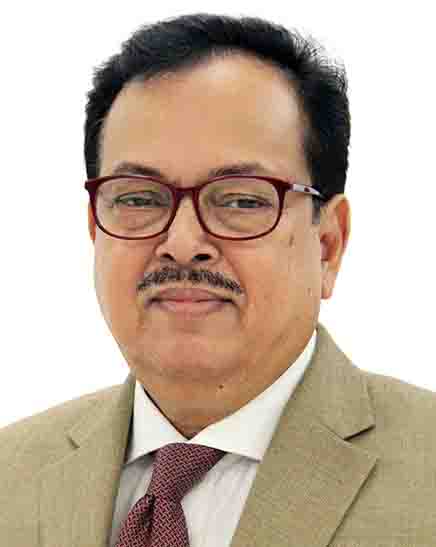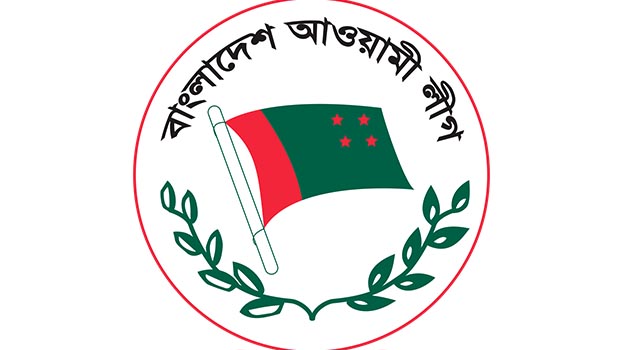Bangabandhu steered Awami League to a new goal

Bangladesh Awami League, which led the Liberation War in 1971 and gave birth to a new nation (the Independent Bangladesh), was founded in June 23, 1949 just immediately after the partition of the Indian subcontinent in 1947. The founders of the party including Huseyn Shaheed Suhrawardy, Maulana Abdul Hamid Khan Bhashani and Bangabandhu Sheikh Mujibur Rahman have played a key role in organising a new party with a view to fulfilling the hopes and aspirations of the common people of the country.
At the inception it was named Awami Muslim League. A new party had to face quite a number of political crises. The party experienced leadership feud over its secular characteristics several times and at one stage it adopted secular ideals and it was renamed as Awami League by rejecting the religious influence of communalism. And at the same time the party had changed its course of action under the leadership of the then most promising leader Sheikh Mujibur Rahman. Party activities reached the grassroots level and in a short time Awami League became as the strongest and most popular political party in the country. The Awami League was the first opposition party in the then Pakistan. At its birth, the party adopted a 42-point programme putting special emphasis on the demand for provincial autonomy. Recognition of Bangla as one of the state languages of Pakistan, one man one vote, democracy, and framing of a Constitution, parliamentary form of government, regional autonomy and removal of disparity between the two wings were the major demands of Awami League during the initial stage of the Pakistani rule. During the Language Movement (1948-52), the Awami League and its student front Chhatra League (Estd. 1948) played a crucial role in establishing Bengali as the state language of Pakistan. The Awami League played a leading role in the formation of the 'All Party State Language Action Committee' in 1952 preceding the 21 February killing.
In the face of mass movement, the Pakistani rulers were compelled to give general elections of 1954 in East Bengal. Sher-e-Bangla A K Fazlul Huq, Huseyn Shaheed Suhrawardy, Maulana Abdul Hamid Khan Bhashani and Bangabandhu Sheikh Mujibur Rahman were instrumental in forming the United Front against the government.
The United Front fought the elections on the basis of a 21-point comprehensive socio-political programme of which 'the state language issue' and 'the demand for autonomy of East Bengal' were the focal points of the people of East Pakistan. In the elections held from March 8 to 12 in 1954, the United Front won a comprehensive victory. Out of the 237 Muslim seats the Muslim League was able to bag only nine seats. Awami League alone secured 143 seats where the Front bagged 223 seats. All the remaining 72 general seats were captured by the allies of the United Front. The United Front partners formed the government headed by AK Fazlul Huq, in which the Awami League was the major partner. But he was dismissed within 56 days of his government. It was followed by a political instability marked by frequent dismissal of governments. Awami League as the majority force in the United Front was dominating the government by the then iconic leader and the source of inspiration of the people, Sheikh Mujibur Rahman. But the Pakistani ruling clique didn’t allow them (Awami League led United Front) to rule the country as per the election verdict.
Since its inception Pakistan was run by the dictators including its founder Muhammad Ali Jinnah, Iskander Mirza and Ayub Khan. After the 1954 election, the Pakistani rulers clearly understood that they would never be able to win the popular support of the people of then East Pakistan. By staging some political games Military Junta Ayub Khan took over the state power by brandishing arms from General Iskander Mirza in 1958 and he suppressed the voice of the people by his Martial Law for long ten years. Bangabandhu Sheikh Mujibur Rahman as the head of Awami League and the uncompromising leader of the country had tried his best to bring a democratic atmosphere in Pakistan. He nominated Miss Fatima Jinnah as Presidential candidate in the election in 1965 as a symbol of unity so that the people of both the wings can have trust in her and if the election was free, fair and credible Miss Fatima Jinnah would have been elected president of Pakistan and the long-cherished democracy would have prevailed. But the Military ruler Ayub Khan chose the path of inhalation. He didn’t allow Fatima to make election campaign freely. And by using official power Ayub Khan declared himself victorious. People could easily understand the ill motive of Ayub Khan and they started organising a protest against him under the leadership of Bangabandhu Sheikh Mujibur Rahman.
Ayub Khan arrested Bangabandhu in a false case and sent him into jail. The people came to the street in protest against the conspiracy hatched by Ayub Khan against Bangabandhu and the people of the country. In the face of mass movement the Military ruler Ayub Khan was ousted in 1969 and General Yahya took over power and announced general election in December 1970. Awami League headed by Bangabandhu got a landslide victory. Bangabandhu was supposed to be invited by the president for taking oath as the prime minister of Pakistan, but the event followed was known to all. The Pakistani military instead of handing over power to Bangabandhu cracked down upon the sleeping people of then East Pakistan with war weapons such as fighter jets, tanks, cannons and other armored and sophisticated arms. They unleashed genocide in Bangladesh. Millions of people were killed and the human habitations, cities, ports and villages were burnt by the Pakistani Army. But they couldn’t protect themselves. They had to make an ignoble surrender to the boys of Bangabandhu (the freedom fighters) who fought a tremendous battle against the Pakistan army in only a nine-month of Liberation War.
The question is- how the long history of the Independence happened led by Awami League? Yes, it was Bangabandhu who knew the sorrows, pain and the feelings of the people. He had a mind to do something for the people. Bangabandhu was given charge of quite a number of ministries as the leader of Awami League. But he gave up those positions and took the responsibility of organising Awami League. He made an extensive visit to the rural people. He visited almost all the villages of then East Pakistan and met the poor and grassroots people. In this way, Bangabandhu made a relationship with them. It was not a simple relationship. He made bonds with his people by heart. And that’s why, the people of Bangladesh vowed to bring back Bangabandhu by waging another war as the country’s independence was incomplete to them without Bangabandhu Sheikh Mujibur Rahman. Bangabandhu had given Awami League a new life and identity by his extra ordinary charisma.
There were big leaders in Awami League, but only Bangabandhu could have earned the absolute love of the people. Prime Minister Sheikh Hasina, the able daughter of Bangabandhu is also getting the love of the people. After the assassination of Bangabandhu in 1975, the Awami League was leaderless. When Sheikh Hasina took over the responsibility of Awami League, it started running smoothly and a historic success has been achieved for the country by Awami League.



